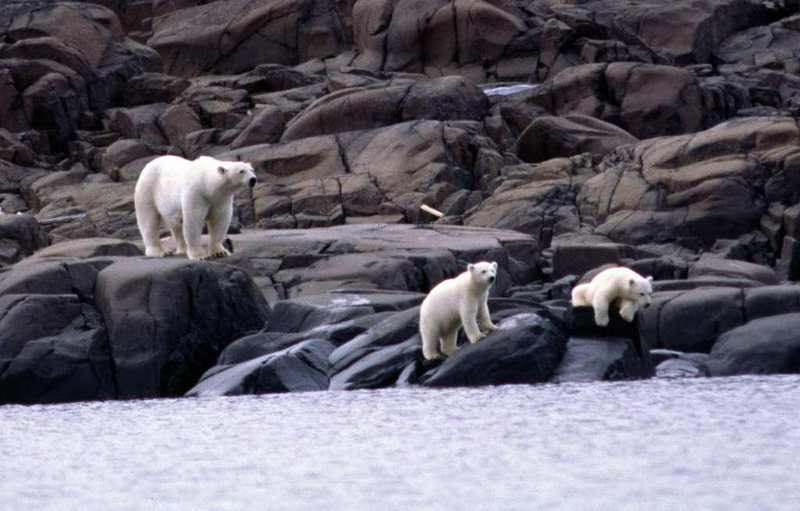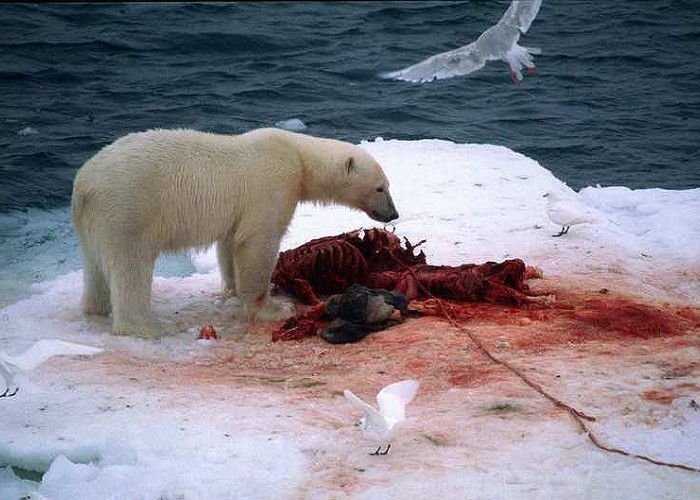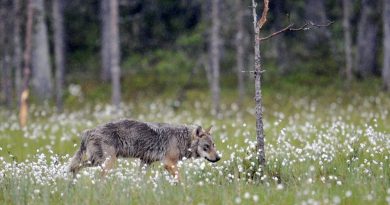Less seal on the menu for hungry polar bears in Svalbard, Norway

Polar bears’ diet is changing as sea-ice declines in the coastal waters around Svalbard. Less ringed seals are killed by polar bears simply because there are less stable ice from where the bears can hunt, a new study by the Norwegian Polar Institute and UiT Norway’s Arctic University shows.
Charmain Hamilton with the Norwegian Polar Institute recently defended her PhD on the topic. She concludes the decline in coastal sea-ice at Svalbard has likely made it more difficult for polar bears to hunt ringed seals, which has caused them to spend less time near tidal glacier fronts, where ringed seals are primarily found, and more time onshore where duck and geese colonies are breeding.
Consequently, eggs and birds are today higher up on the plan bear’s à la carte menu. That is bad news for the birds that have nests on the ground.
Changing ice conditions

After 2006, it has become much less stable ice in the area.
«Before changes in ice conditions at Svalbard, ringed seals and polar bears spent most of the time living and hunting near the glaciers edges during summer,» Charmain Hamilton tells.
«These are very important areas for seals, but also important hunting ground for polar bears. The stable ice from shore that used to stretch out to the coastal waters until late summer gave polar bears a platform from where they could hunt,» Hamilton explains.
Today, when the ice melts earlier in the season or isn’t there at all, polar bears are less frequently seen in these areas. The bears will have to swim longer in open water to catch a seal on an ice-flow, while before they could swim more undetected between many more ice-flows before doing a surprise jump out of the water to grab a seal.
Also, the study shows, ringed seals are now resting more on calved ice floes from glaciers. Such ice differ from flat sea-ice and requires a totally different hunting technic by the polar bears.
Birds, not a sustainable alternative
Hamilton says the researchers do not know if the polar bears get enough nourishment by eating eggs, chickens and birds instead of seals. «But in the longer run, birds are not a sustainable alternative for the polar bears,» she says.
Polar bear can eat more than 90 percent of the eggs when entering a colony of nesting birds.
According to the Norwegian Polar Institute, the Arctic’s population of polar bears could be reduced to one third of today’s population by 2050. Most likely, starvation is the main cause of death among polar bears. Chemical pollution accumulated in the fat of Arctic animals do not make the situation better.
A full article (paywall) of Hamilton and her colleagues study is published in the Journal of Animal Ecology.
Related stories from around the North:
Canada: Climate change may harm polar bear’s ability to hunt, Radio Canada International
Finland: Ultra-rare Saimaa seals still dying in fishing nets in Finland, Yle News
Greenland: Arctic sea ice – Is the minimum maximum the new normal?, blog by Irene Quaile, Deutsche Welle
Norway: January sea ice extent at record low in Barents and Kara seas, The Independent Barents Observer
Russia: Russian researchers besieged by polar bears on Arctic island, The Independent Barents Observer
Sweden: How will global warming affect the average Swede?, Radio Sweden
United States: Arctic Ocean on track to be ice-free in summer by 2040, say scientists, Alaska Dispatch News



